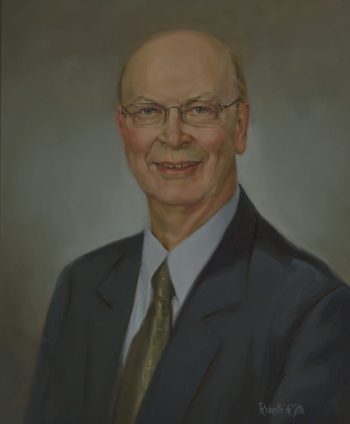Charles Froebe
- Canadian Agricultural Hall of Fame
- Inductees
- Charles Froebe

- Inducted: 2014
- Residing Province: Manitoba
- Gallery Location: 198
- Nominated By: Canadian Canola Growers Association
Charles Froebe
- (1941
- -
- )
Canada’s canola industry has Charles Froebe to thank for much of the golden crop’s success in this country. Charlie could see the tremendous impact and opportunities canola would have on the agronomic and financial success of Canadian farmers.
From one of the first canola crops grown in Canada, to the more than 20 million acres now grown across the country, canola has come of age with the help of Charlie’s vision and hard work.
A farmer first, Charlie started farming in 1962 with 320 acres at Homewood, Manitoba. His brother joined the operation two years later, and the Froebe brothers were early adopters of new technology and some of the first farmers to grow canola in Canada.
For more than three decades, Charlie was a leader in the Canadian canola industry at the provincial and national level. His work began with the creation of the Prairie Canola Growers Council in 1983. And in 1992, one of his most notable and impactful contributions was championing the formation of the Canadian Canola Growers Association, a national organization that today advocates for 43,000 canola farmers on issues and policies that impact canola farm profitability. Charlie served as general manager of the Prairie Canola Growers Council, as well as the newly formed national body from its inception until his retirement in 2000.
To further ensure profitability for Canadian canola growers, Charlie successfully saw the extension of the national cash advance program for wheat to canola and ultimately more than 20 other crops. The first canola advances were issued in 1983 to help farmers manage cash flow and market their canola more effectively, and ultimately expand their canola acres.
For years, Charlie managed the association and administered the cash advance program out of his home – with tremendous help from his wife Bonnie – while he continued farming. By the late 1990s, the association had grown exponentially and moved into office space in Carman, Manitoba. Charlie retired from farming in 1996 and the Canadian Canola Growers Association in 2000. Today, the organization that Charlie started employs more than 60 people from its offices in Winnipeg, Manitoba.
Charlie has received numerous awards and accolades for his work including Carman’s Citizen of the Year in 1984, Certificate of Merit from the University of Manitoba in 2001 for his outstanding contribution to the agriculture industry and public at large, Manitoba Canola Growers Award of Excellence in 2010 and inductee into the Manitoba Agricultural Hall of Fame in 2011.
Charlie Froebe put all the traits of a Canadian farmer – honesty, loyalty and dedication – to work for a bigger cause that impacted the entire Canadian agricultural industry. Charlie moved canola into the limelight, advocated for innovation and improved the profitability for Canadian farmers. Canola could not be the golden crop it is today without his vision. Thank you, Charles Froebe.
L’industrie canadienne du canola peut remercier Charles Froebe pour une bonne partie du succès qu’a connu cette culture d’or au pays. M. Froebe a en effet su reconnaître le rôle important qu’allait jouer le canola dans la réussite agronomique et financière des agriculteurs canadiens.
Depuis son introduction au Canada, le canola est maintenant produit sur plus de 20 millions d’acres, ayant atteint son succès grâce à la vision et au dur labeur de Charlie.
D’abord agriculteur, Charlie a commencé en cultivant la terre en 1962 sur 320 acres à Homewood, au Manitoba. Son frère s’est joint à lui deux ans plus tard et, ensemble, ils ont été parmi les premiers à adopter de nouvelles technologies et à produire du canola au Canada.
Pendant plus de trois décennies, Charlie a été un chef de file dans l’industrie canadienne du canola aux niveaux provincial et national. Son travail a débuté par la création du Prairie Canola Growers Council en 1983. Et, en 1992, l’une de ses contributions les plus notables et marquantes a été son appui à la formation de la Canadian Canola Growers Association, une organisation nationale qui défend aujourd’hui les intérêts de 43 000 producteurs de canola en ce qui a trait aux enjeux et aux politiques qui touchent leur rentabilité. Charlie a été directeur général du Prairie Canola Growers Council; il a également dirigé la nouvelle association nationale depuis sa fondation, et ce, jusqu’à ce qu’il prenne sa retraite en 2000.
Pour assurer encore plus la rentabilité des producteurs canadiens de canola, Charlie a veillé à ce que le programme national des paiements anticipés pour le blé soit étendu au canola et, ultimement, à plus de vingt autres cultures. Les premiers paiements pour le canola ont été émis en 1983 afin d’aider les agriculteurs à gérer leurs liquidités et à commercialiser leur canola plus efficacement et ainsi accroître leurs superficies de production.
Pendant de nombreuses années, M. Froebe a géré l’association et administré le programme des paiements anticipés chez lui – avec la précieuse aide de son épouse, Bonnie – tout en continuant à exploiter sa ferme. À la fin des années 1990, l’essor de l’association était tel que celle-ci a emménagé dans de nouveaux bureaux à Carman, au Manitoba. Charlie a cessé d’exploiter sa ferme en 1996 et s’est retiré de la Canadian Canola Growers Association en 2000. Aujourd’hui, l’organisation que Charlie a mise sur pied emploie plus de 60 personnes dans ses bureaux situés à Winnipeg, au Manitoba.
Charlie a reçu bon nombre de prix et de reconnaissances pour son travail, dont le prix du Citoyen de l’année de Carman en 1984, un certificat de mérite de l’Université du Manitoba en 2001 pour sa contribution exceptionnelle à l’industrie agricole et à la population en général, le Prix d’excellence de l’Association manitobaine des producteurs de canola en 2010 et l’intronisation au Manitoba Agricultural Hall of Fame en 2011.
Charlie Froebe a mis toutes les qualités de l’agriculteur canadien – honnêteté, loyauté et dévouement – au service d’une cause plus large qui a eu un impact sur toute l’industrie agricole canadienne. Il a mis le canola à l’avant-scène, a mis en valeur l’innovation et a amélioré la rentabilité des agriculteurs canadiens. Le canola n’aurait pu devenir la culture d’or qu’elle est aujourd’hui sans sa vision. Merci, Charles Froebe.


